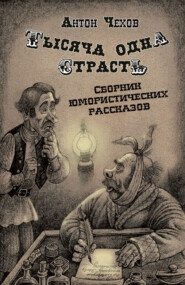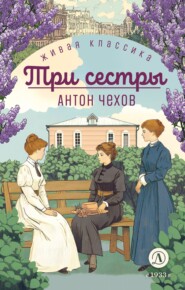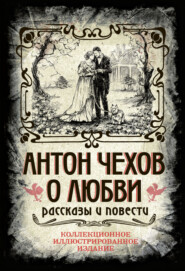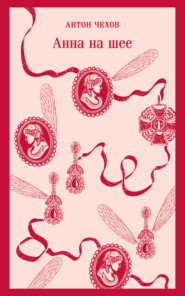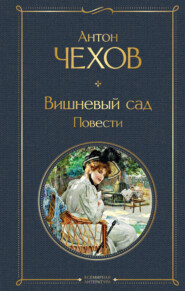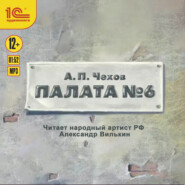По всем вопросам обращайтесь на: info@litportal.ru
(©) 2003-2025.
✖
Ivanoff: A Play
Настройки чтения
Размер шрифта
Высота строк
Поля
ANNA laughs.
SHABELSKI. [With a Jewish accent] Vy do you laugh?
ANNA. I was thinking of something you said at dinner, do you remember? How was it – a forgiven thief, a doctored horse.
SHABELSKI. A forgiven thief, a doctored horse, and a Christianised Jew are all worth the same price.
ANNA. [Laughing] You can't even repeat the simplest saying without ill-nature. You are a most malicious old man. [Seriously] Seriously, Count you are extremely disagreeable, and very tiresome and painful to live with. You are always grumbling and growling, and everybody to you is a blackguard and a scoundrel. Tell me honestly, Count, have you ever spoken well of any one?
SHABELSKI. Is this an inquisition?
ANNA. We have lived under this same roof now for five years, and I have never heard you speak kindly of people, or without bitterness and derision. What harm has the world done to you? Is it possible that you consider yourself better than any one else?
SHABELSKI. Not at all. I think we are all of us scoundrels and hypocrites. I myself am a degraded old man, and as useless as a cast-off shoe. I abuse myself as much as any one else. I was rich once, and free, and happy at times, but now I am a dependent, an object of charity, a joke to the world. When I am at last exasperated and defy them, they answer me with a laugh. When I laugh, they shake their heads sadly and say, "The old man has gone mad." But oftenest of all I am unheard and unnoticed by every one.
ANNA. [Quietly] Screaming again.
SHABELSKI. Who is screaming?
ANNA. The owl. It screams every evening.
SHABELSKI. Let it scream. Things are as bad as they can be already. [Stretches himself] Alas, my dear Sarah! If I could only win a thousand or two roubles, I should soon show you what I could do. I wish you could see me! I should get away out of this hole, and leave the bread of charity, and should not show my nose here again until the last judgment day.
ANNA. What would you do if you were to win so much money?
SHABELSKI. [Thoughtfully] First I would go to Moscow to hear the Gipsies play, and then – then I should fly to Paris and take an apartment and go to the Russian Church.
ANNA. And what else?
SHABELSKI. I would go and sit on my wife's grave for days and days and think. I would sit there until I died. My wife is buried in Paris. [A pause.]
ANNA. How terribly dull this is! Shall we play a duet?
SHABELSKI. As you like. Go and get the music ready. [ANNA goes out.]
IVANOFF and LVOFF appear in one of the paths.
IVANOFF. My dear friend, you left college last year, and you are still young and brave. Being thirty-five years old I have the right to advise you. Don't marry a Jewess or a bluestocking or a woman who is queer in any way. Choose some nice, common-place girl without any strange and startling points in her character. Plan your life for quiet; the greyer and more monotonous you can make the background, the better. My dear boy, do not try to fight alone against thousands; do not tilt with windmills; do not dash yourself against the rocks. And, above all, may you be spared the so-called rational life, all wild theories and impassioned talk. Everything is in the hands of God, so shut yourself up in your shell and do your best. That is the pleasant, honest, healthy way to live. But the life I have chosen has been so tiring, oh, so tiring! So full of mistakes, of injustice and stupidity! [Catches sight of SHABELSKI, and speaks angrily] There you are again, Uncle, always under foot, never letting one have a moment's quiet talk!
SHABELSKI. [In a tearful voice] Is there no refuge anywhere for a poor old devil like me? [He jumps up and runs into the house.]
IVANOFF. Now I have offended him! Yes, my nerves have certainly gone to pieces. I must do something about it, I must —
LVOFF. [Excitedly] Ivanoff, I have heard all you have to say and – and – I am going to speak frankly. You have shown me in your voice and manner, as well as in your words, the most heartless egotism and pitiless cruelty. Your nearest friend is dying simply because she is near you, her days are numbered, and you can feel such indifference that you go about giving advice and analysing your feelings. I cannot say all I should like to; I have not the gift of words, but – but I can at least say that you are deeply antipathetic to me.
IVANOFF. I suppose I am. As an onlooker, of course you see me more clearly than I see myself, and your judgment of me is probably right. No doubt I am terribly guilty. [Listens] I think I hear the carriage coming. I must get ready to go. [He goes toward the house and then stops] You dislike me, doctor, and you don't conceal it. Your sincerity does you credit. [He goes into the house.]
LVOFF. [Alone] What a confoundedly disagreeable character! I have let another opportunity slip without speaking to him as I meant to, but I simply cannot talk calmly to that man. The moment I open my mouth to speak I feel such a commotion and suffocation here [He puts his hand on his breast] that my tongue sticks to the roof of my mouth. Oh, I loathe that Tartuffe, that unmitigated rascal, with all my heart! There he is, preparing to go driving in spite of the entreaties of his unfortunate wife, who adores him and whose only happiness is his presence. She implores him to spend at least one evening with her, and he cannot even do that. Why, he might shoot himself in despair if he had to stay at home! Poor fellow, what he wants are new fields for his villainous schemes. Oh, I know why you go to Lebedieff's every evening, Ivanoff! I know.
Enter IVANOFF, in hat and coat, ANNA and SHABELSKI
SHABELSKI. Look here, Nicholas, this is simply barbarous You go away every evening and leave us here alone, and we get so bored that we have to go to bed at eight o'clock. It is a scandal, and no decent way of living. Why can you go driving if we can't? Why?
ANNA. Leave him alone, Count. Let him go if he wants to.
IVANOFF. How can a sick woman like you go anywhere? You know you have a cough and must not go out after sunset. Ask the doctor here. You are no child, Annie, you must be reasonable. And as for you, what would you do with yourself over there?
SHABELSKI. I am ready to go anywhere: into the jaws of a crocodile, or even into the jaws of hell, so long as I don't have to stay here. I am horribly bored. I am stupefied by this dullness. Every one here is tired of me. You leave me at home to entertain Anna, but I feel more like scratching and biting her.
ANNA. Leave him alone, Count. Leave him alone. Let him go if he enjoys himself there.
IVANOFF. What does this mean, Annie? You know I am not going for pleasure. I must see Lebedieff about the money I owe him.
ANNA. I don't see why you need justify yourself to me. Go ahead! Who is keeping you?
IVANOFF. Heavens! Don't let us bite one another's heads off. Is that really unavoidable?
SHABELSKI. [Tearfully] Nicholas, my dear boy, do please take me with you. I might possibly be amused a little by the sight of all the fools and scoundrels I should see there. You know I haven't been off this place since Easter.
IVANOFF. [Exasperated] Oh, very well! Come along then! How tiresome you all are!
SHABELSKI. I may go? Oh, thank you! [Takes him gaily by the arm and leads him aside] May I wear your straw hat?
IVANOFF. You may, only hurry, please.
SHABELSKI runs into the house.
IVANOFF. How tired I am of you all! But no, what am I saying? Annie, my manner to you is insufferable, and it never used to be. Well, good-bye, Annie. I shall be back by one.
ANNA. Nicholas! My dear husband, stay at home to-night!
IVANOFF. [Excitedly] Darling, sweetheart, my dear, unhappy one, I implore you to let me leave home in the evenings. I know it is cruel and unjust to ask this, but let me do you this injustice. It is such torture for me to stay. As soon as the sun goes down my soul is overwhelmed by the most horrible despair. Don't ask me why; I don't know; I swear I don't. This dreadful melancholy torments me here, it drives me to the Lebedieff's and there it grows worse than ever. I rush home; it still pursues me; and so I am tortured all through the night. It is breaking my heart.
ANNA. Nicholas, won't you stay? We will talk together as we used to. We will have supper together and read afterward. The old grumbler and I have learned so many duets to play to you. [She kisses him. Then, after a pause] I can't understand you any more. This has been going on for a year now. What has changed you so?
IVANOFF. I don't know.
ANNA. And why don't you want me to go driving with you in the evening?
IVANOFF. As you insist on knowing, I shall have to tell you. It is a little cruel, but you had best understand. When this melancholy fit is on me I begin to dislike you, Annie, and at such times I must escape from you. In short, I simply have to leave this house.
ANNA. Oh, you are sad, are you? I can understand that! Nicholas, let me tell you something: won't you try to sing and laugh and scold as you used to? Stay here, and we will drink some liqueur together, and laugh, and chase away this sadness of yours in no time. Shall I sing to you? Or shall we sit in your study in the twilight as we used to, while you tell me about your sadness? I can read such suffering in your eyes! Let me look into them and weep, and our hearts will both be lighter. [She laughs and cries at once] Or is it really true that the flowers return with every spring, but lost happiness never returns? Oh, is it? Well, go then, go!
IVANOFF. Pray for me, Annie! [He goes; then stops and thinks for a moment] No, I can't do it. [IVANOFF goes out.]
ANNA. Yes, go, go – [Sits down at the table.]
LVOFF. [Walking up and down] Make this a rule, Madam: as soon as the sun goes down you must go indoors and not come out again until morning. The damp evening air is bad for you.






